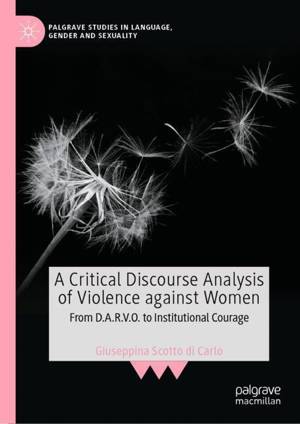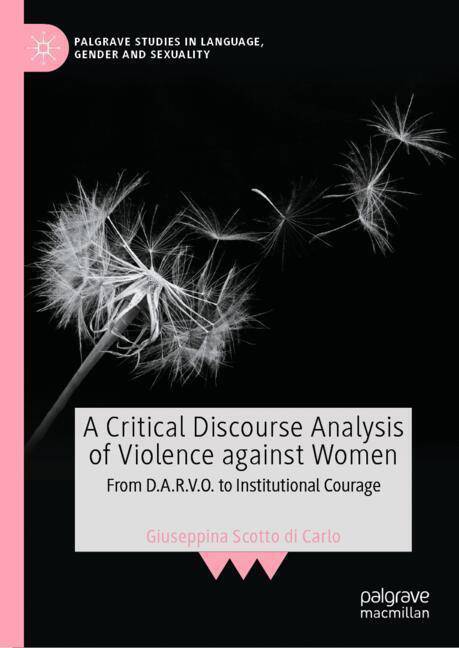
- Afhalen na 1 uur in een winkel met voorraad
- Gratis thuislevering in België vanaf € 30
- Ruim aanbod met 7 miljoen producten
- Afhalen na 1 uur in een winkel met voorraad
- Gratis thuislevering in België vanaf € 30
- Ruim aanbod met 7 miljoen producten
Zoeken
A Critical Discourse Analysis of Violence Against Women
From D.A.R.V.O. to Institutional Courage
Giuseppina Scotto Di Carlo
€ 198,45
+ 396 punten
Omschrijving
This book presents a critical analysis of the language surrounding Violence against Women and Girls (VAWG), demonstrating how discourse can both sustain harm and serve as a catalyst for healing and change. Grounded in Critical Discourse Analysis (CDA), it examines the "DARVO" tactic--Deny, Attack, Reverse Victim and Offender (Freyd, 1997)--a manipulative strategy used by perpetrators to evade accountability, silence survivors, and reinforce a culture of victim-blaming. Through detailed case studies, the book uncovers the broader societal structures that enable and normalise these behaviours. To counteract these harmful dynamics, the author introduces the concept of "institutional courage" (Freyd, 1997), providing a framework for institutions to respond more effectively and empathetically to VAWG. Ultimately, the book advocates for a shift in both individual and institutional responses, urging a collective commitment to challenge DARVO and adopt institutional courage in the fight against VAWG. This work will be of particular interest to scholars, practitioners, and students across Linguistics, Women's and Gender Studies, Sociology, and Institutional Discourse.
Specificaties
Betrokkenen
- Auteur(s):
- Uitgeverij:
Inhoud
- Aantal bladzijden:
- 336
- Taal:
- Engels
- Reeks:
Eigenschappen
- Productcode (EAN):
- 9783031888656
- Verschijningsdatum:
- 27/05/2025
- Uitvoering:
- Hardcover
- Formaat:
- Genaaid
- Afmetingen:
- 148 mm x 210 mm
- Gewicht:
- 580 g

Alleen bij Standaard Boekhandel
+ 396 punten op je klantenkaart van Standaard Boekhandel
Beoordelingen
We publiceren alleen reviews die voldoen aan de voorwaarden voor reviews. Bekijk onze voorwaarden voor reviews.








